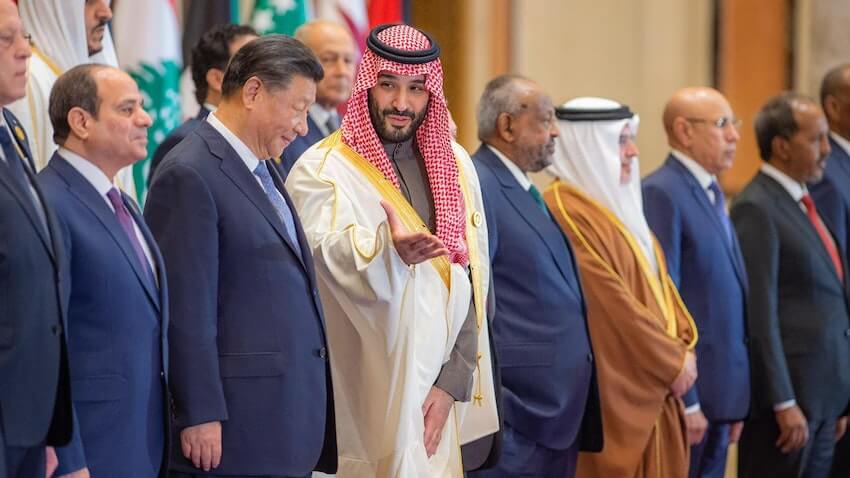
What the Saudi-Iran deal means for Palestine, Israel, the U.S., and the Mideast
['Saudi', 'Israel', 'Iran', 'Arabia', 'States']
The Chinese-brokered deal between Iran and Saudi Arabia to restore relations has the potential to shake up regional and global politics for the Palestinians' benefit.
What the Saudi-Iran deal means for Palestine, Israel, the U.S., and the Mideast
That competition will still exist, as it existed before Saudi Arabia cut off relations with Iran in 2016 in the wake of protests that attacked Saudi missions in Iran after Saudi Arabia executed Nimr al-Nimr, a prominent Shi'ite cleric and vocal critic of the Saudi government. While the temperature between Iran and Saudi Arabia had already lessened because the truce, brokered by the United Nations, is holding, this new agreement provides a much stronger incentive for Saudi Arabia to avoid war. Israel will find it difficult, amid Saudi opposition to an attack, to find a good route to Iran for its planes. On top of all of that, a détente between Iran and Saudi Arabia allows Riyadh to more actively work to dissuade Iran from any plans to acquire a nuclear weapon, and to work with other Gulf states that have relations with Iran such as Oman and Qatar to convince Iran to avoid even the perception of trying to acquire a nuclear weapon. While some observers saw the demands as an opening volley in negotiations, the fact that a deal with Iran was announced the next day suggests that the Saudis are content to put off, perhaps for years, any agreement with Israel, and might even wish to hold on to the idea of winning, if not the full terms of the Arab Peace Initiative, at least some significant concessions for the Palestinians in exchange for normalizing with Israel. While Saudi Arabia has the right to enrich uranium for civilian use under the Nuclear Non-Proliferation Treaty, the U.S. has, wisely, been loathe to enhance their ability to do so due to concerns about the potential for developing a nuclear weapon, and fueling a regional nuclear arms race, considering that Saudi Arabia has not adopted the protocols that would allow for International Atomic Energy Agency monitoring. Dan Shapiro, the former U.S. Ambassador to Israel said, "Normalization between Israel and Saudi Arabia, facilitated by the United States, is in all three parties' interests." But is that really true? The benefits for Israel are obvious.